What is the average water bill per month? Current prices based on the Ofwat increase
Here's what you can expect to pay for your water bill from April - plus, ways to keep it down
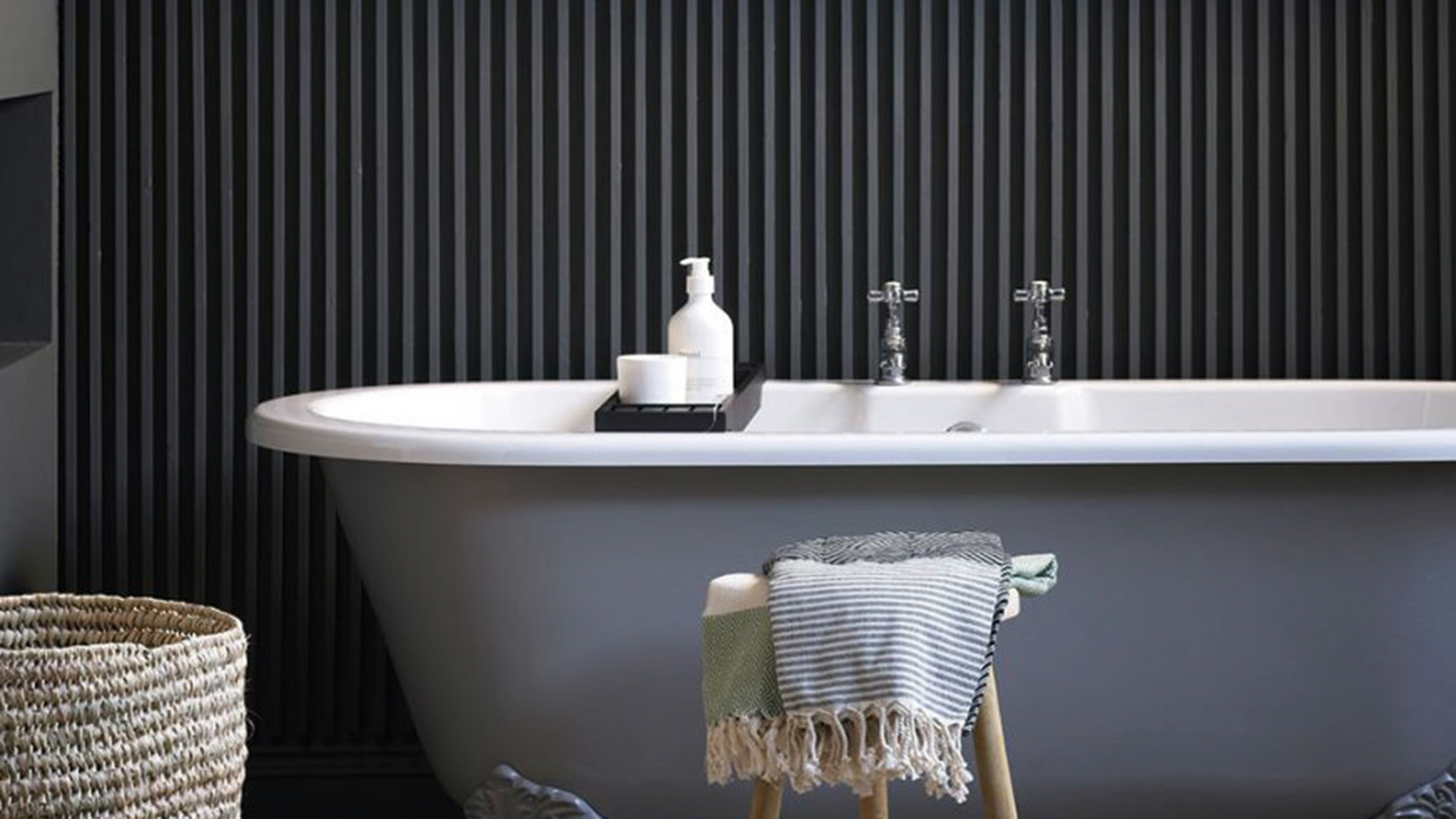

Katie Sims
You're probably not alone if you've been wondering what exactly the average water bill is at the moment, and if it's increasing at all. Understanding water bills can be confusing at the best of times, so whenever we hear they're going up, it can leave us scratching our heads and wondering what we can do to get them back down.
Knowing what's what when it comes to water bills might be something we're tempted to skip over; as far as we're concerned, we receive a bill based on our water usage and it's our job to pay it. But having sound awareness of the current average prices can stop you from overpaying, and help you make sense of your bill if you've noticed a sudden increase.
'UK residents have been given some respite with an extension of government aid in terms of energy bills, however, a rise in water bills comes into place in April 2023,' says James Longley, Managing Director, Utility Bidder. 'It is widely expected that water bills will see their biggest increase in 20 years - with annual bills for the average UK household going up by 7.5% in some cases.'
When you're the one paying the bill, it's only right that you have a good understanding of how your water bill is calculated, and why it's increasing. Knowing the average water bill can help us realise how much our actions around the house actually add up to, whether that's leaving the tap on while brushing our teeth, or staying in the shower longer than necessary.
Average water bill
So just like having a handy utility bills guide, it pays to know about the national average water bill, and where yours sits in relation to it. Our guide will also cover some useful tips and tricks to help keep your water bill down following the projected increase from April.
What is the average UK water bill per month?
According to Water UK, which represents and works the major water providers across the UK, the average water bill for the 2023/24 financial year is expected to increase to £448. This is an extra £31 compared to the previous year, which is the largest hike in almost two decades.
This means that the current average water bill per month from April will be £37.30 (equivalent to around 60p more each week).
Get the Ideal Home Newsletter
Sign up to our newsletter for style and decor inspiration, house makeovers, project advice and more.
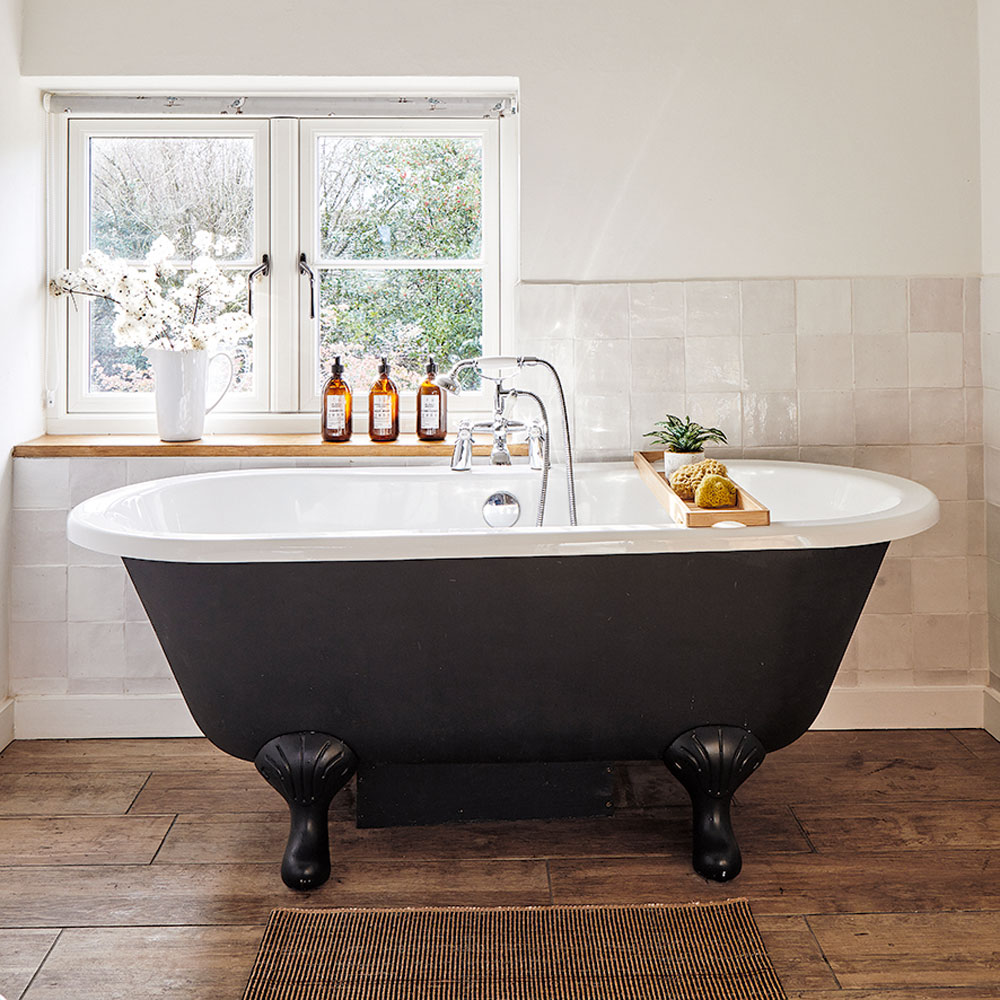
There is no single rate for water use across the UK. The amount households are billed depends on a number of factors so it’s important to realise that a household in one part of the country may find themselves paying a different amount than a similar-sized home in another region.
That said, individual water companies can look across their customer base as a whole and see roughly what the average household might pay.
'The average UK water bill is currently £448, which includes both the water (£215) and the sewerage (£233),' explains John Paul Drake, Energy Expert, Love Energy Savings. 'The former covers the cost of gathering, treating, cleaning, storing and distributing water to properties. The latter looks after building and maintaining sewer pipes, and sending cleaned and treated wastewater back into rivers and the sea.'
How are water bills calculated?
There are a number of factors which have an effect on how bills are calculated. Shona England-Lees from Yorkshire Water explains: ‘Customers with a water meter are charged based on the water they use, and customers without a meter are charged based on their property’s rateable value.’
Regan from Anglian Water explains: ‘If you have a meter, you pay for the amount of water you use. This is recorded on your water meter and we send you a bill for the amount of water you have used since your previous bill.
If you don't have a water meter, we calculate your bill using the rateable value of your home, which is based on differing factors including the size of your home and the number of rooms and your local amenities.’
Shona from Yorkshire Water adds: ‘Most water bills pay for clean and waste water services. That includes supplying clean water to the customer’s home, and taking waste water away. It also includes surface water and a standing charge which covers rainwater taken away by the public sewer and management of the account.’
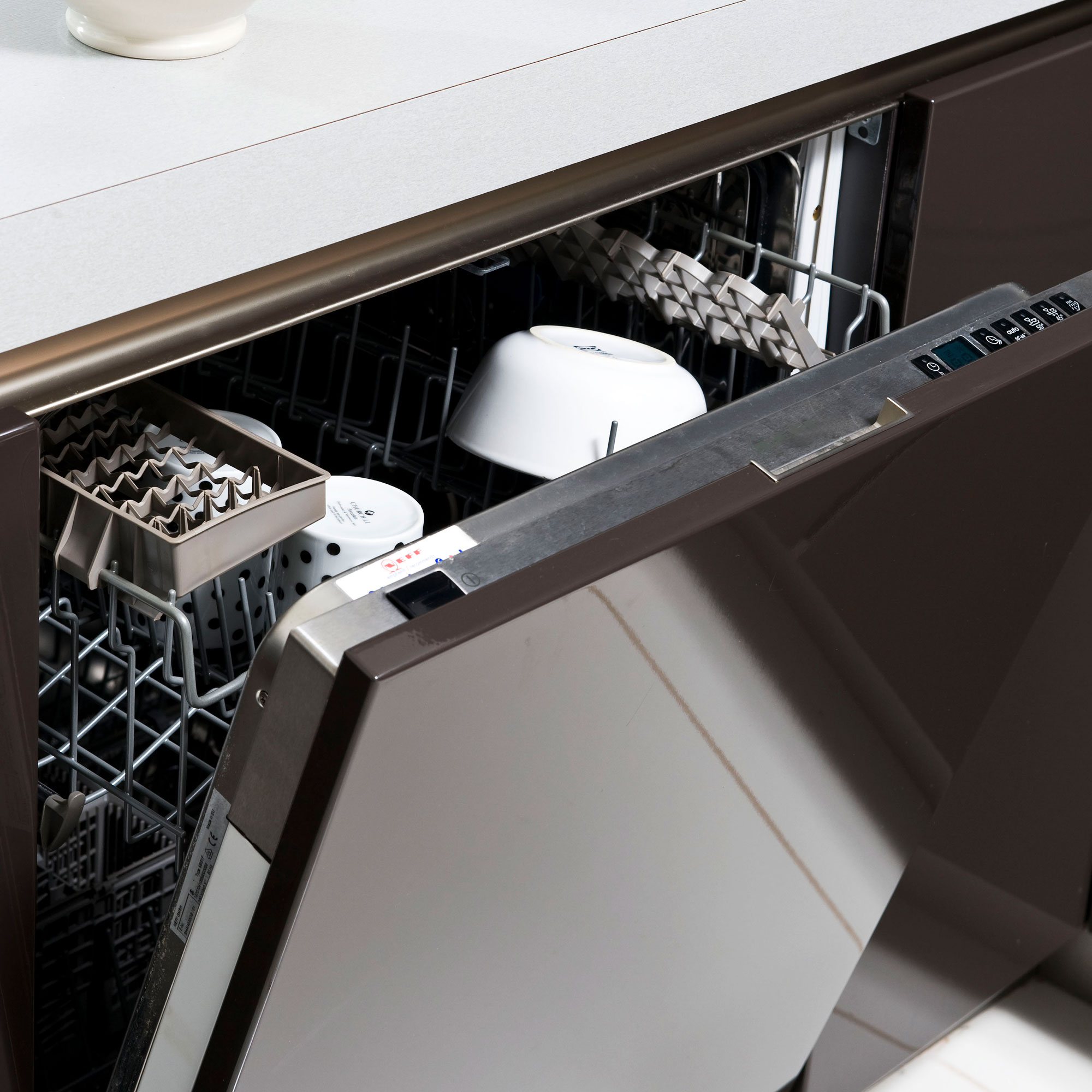
How do companies determine the water rates in the UK?
Regan from Anglian Water explains: ‘Charges are regulated by Ofwat, who set rules that water companies must follow. Ofwat.gov.uk regulates the price, investment and service package that customers receive from each water company. This ensures consumers’ interests are balanced, alongside the need the company has to invest in maintenance, improvements and day-to-day delivery of water and sewerage services. As well as ensuring we protect the environment and plan for the future, too.’
The current spike reflects the inflationary impact of the energy price cap increase that happened in October 2022. And though water prices are rising, they're still lower than inflation, which is good news.
What is the average water usage per month?
According to Water UK, the average person in the UK uses 142 litres of water a day. Remember, these figures are an average, and your personal water usage is influenced by a number of factors.
'An average family household uses about 500 litres of water every day,' says Thomas Goodman, Property Expert, MyJobQuote. 'That’s around 15,000 litres every month.'
Why is my water bill higher than usual?
If you're wondering 'why is my water bill higher than usual?' that could be down to many factors. ‘Usage, whether you have a water meter installed or not, or the rateable value of your home if you are unmetered,’ explains Regan from Anglian Water.
‘The amount you pay depends on a number of things,’ suggests Shona from Yorkshire Water. ‘For example, what type of bill you get (for instance, paperless), how much water you use, the services you pay for and whether you have a meter or not. We often find that customers can save money by switching to a meter. If you get a water meter and then change your mind, you have two years to switch back.’
Factors that could increase your monthly water bill
If you notice a jump in your average water bill it’s worth investigating what might be behind the increase. Some factors worth considering are:
- Warm weather – Are you having to water your garden with a hose/sprinkler? Have you been filling a paddling pool? Have you been taking more showers to cool down.
- Leaky or running toilet – Listen for a hissing sound that might point to a leaking cistern. One way of checking for a leak is to put a couple of drops of food colouring in the cistern tank. Wait for 10-15 mins and then check the toilet bowl for any signs of the coloured dye.
- House guests – More people at any one point staying at your house will inevitably lead to an increase in water consumption.
- A leak inside or outside your property – If you suspect a leak make sure there are no water-using appliances running and that nobody is running any taps, flushing the toilet, etc… Take a reading from your water meter (if you have one). Wait for 30 mins and then read the meter again. If the numbers have changed there is a good chance you might have a leak and you should get in touch with your water company to have it investigated.
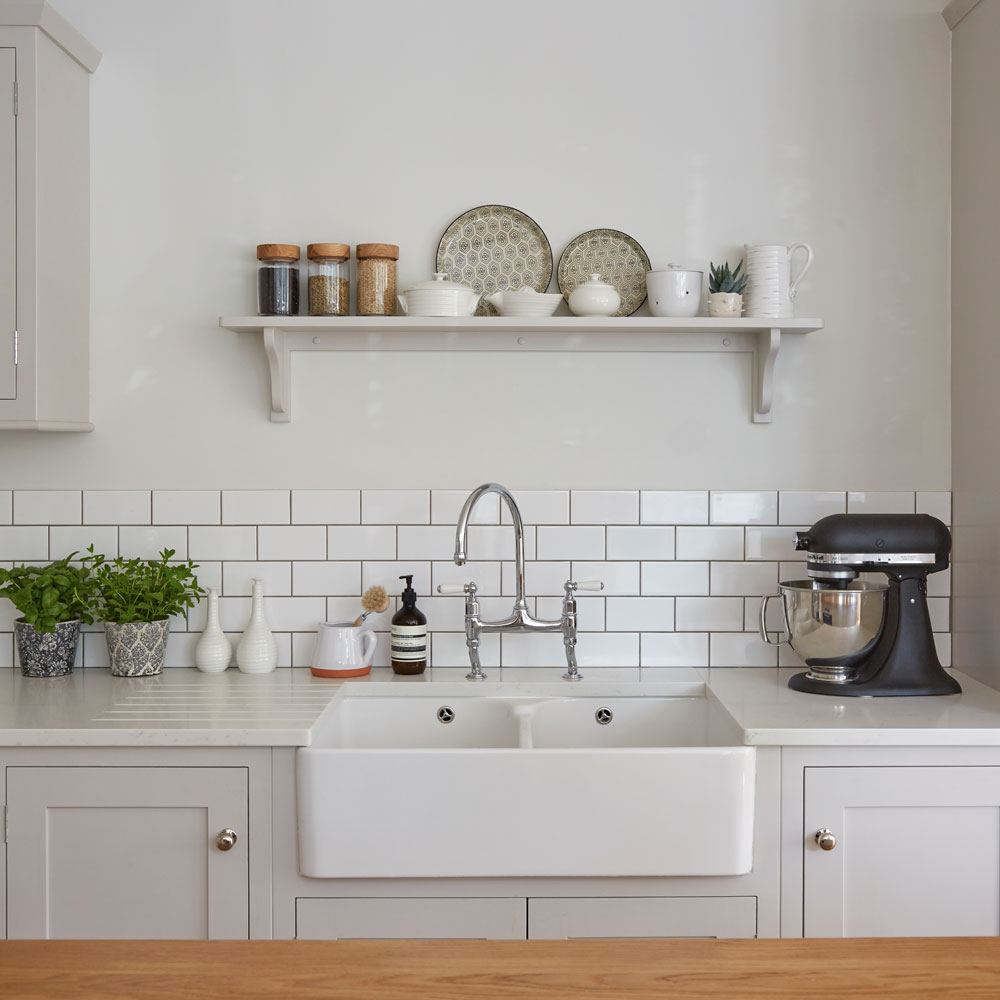
How can I reduce my water bill?
Just like there are ways to save energy at home, there are some things you can do to reduce your average water bill.
‘We all need water and use it in so many ways around the home.’ says Brian Horne, Senior Insights & Analytics Consultant, Energy Saving Trust. ‘Through cooking, washing our hands, showering and bathing, the litres soon add up.
‘If you’re on a water meter, saving water can reduce your water bill,' adds Brian. Also reducing energy use, plus; 'reduce the impact on your local environment and reduce carbon dioxide emissions by using less energy to pump, heat and treat the water.’
Brian suggests the following tips to reduce your consumption and therefore, bills:
1. Reduce shower time
Keeping your shower time to just 4 minutes could save a four-person household £75 a year on their energy bills and a further £105 on their water bills if they have a water meter - £180 total saving for a four-person household.
2. Use machines at full capacity
Only run your dishwasher when it is full to reduce the amount of water you use, and only wash your clothes in your washing machine when you have a full load. Reducing your washing machine use by one run per week for a year could save you £10 a year on your energy bills and 12kg of CO2, equivalent to driving 43 miles – Edinburgh to Glasgow.
3. Put an aerator on your tap
Fit an aerator onto your existing kitchen tap to reduce the amount of water coming out without affecting its effectiveness. An aerator is a small gadget with tiny holes - they attach to the spout of taps and are cheap and easy to install. This could save you £14 on your annual energy bills and 65kg of CO2, equivalent to driving 230 miles – London to Bristol and back again.
4. Use a water-efficient showerhead
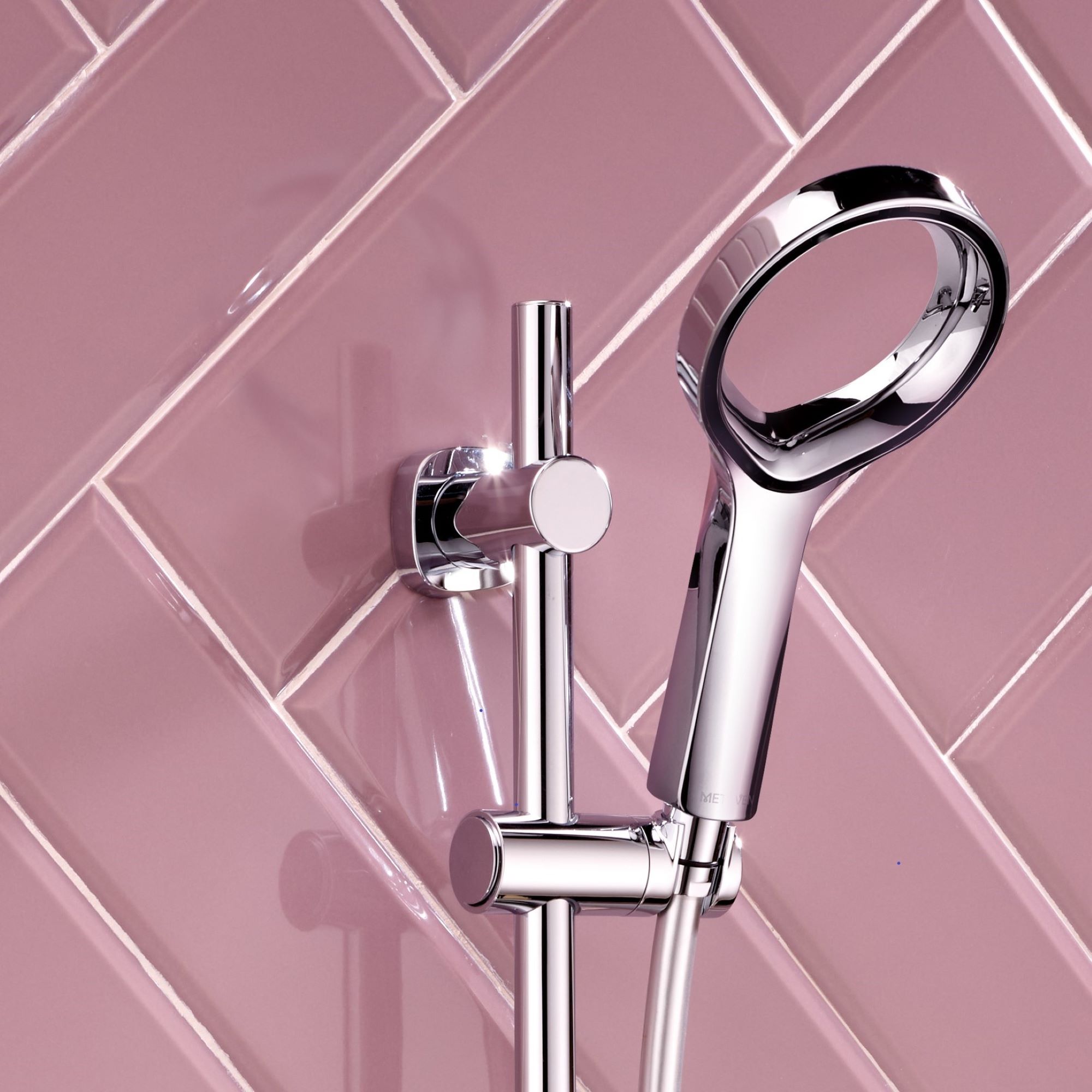
Fitting a water efficient shower head could save a four-person household £35 a year on energy bills. And around £45 off water bills if they have a water meter. Or at the very least, learn how to fix a leaky showerhead if yours is dripping.
5. Fill your washing up bowl
Using a bowl to wash up rather than a running tap can save you money on your energy and water bills if you have a water meter. You only need to run a typical tap for 95 seconds to fill a washing up bowl.
6. Turn dripping taps off
We've all heard this one before, and yet we're still guilty of leaving the taps on when they could be off. And how many times have you put up with a leaky tap when you can learn how to fix a dripping tap within the space of an hour?
'A dripping tap can waste more than 5,500 litres of water a year, so make sure your taps are properly turned off and change washers promptly when taps start to drip’, says Brian. Learning how to change a tap washer is another easy DIY job that can help reduce your average water bill.
FAQs
How much water does a 2 person household use UK?
'Based on normal activities with showers, washing machines and dishwashers factored in, a two-person household uses around 270 litres of water per day,' says property expert Thomas Goodman. 'With water and sewerage costs combined, this works out at around £500 per year. Those with water-saving devices and efficient appliances will use a bit less.'
'The average person in the UK uses around 145 litres of water per day - taking this total to nearer 290 litres for a two-person household,' says James from Utility Bidder. 'If we extend these averages to a 30-day month then you are looking at around 8,700 litres of water used per two-person household.'
How much water does a 20 minute shower use?
'Depending on the type of showerhead used, a typical shower will use 2.5 to 5 gallons of water per minute, and 40 to 50 gallons per 20-minute cycle', says James.
Cutting down your time in the shower is one of the easiest ways to lower your average water bill. 'The recommended maximum shower time is around 5-10 minutes, yet some people may take up to 20 minutes,' James says.
'This doesn't just stop at using the shower, but also extends to avoiding turning the shower on and leaving it to get warm while doing other things, or using it when cleaning instead of re-using water and cleaning products used across other bathroom areas,' says James Roberts, Director, Sanctuary Bathrooms.
A long, hot shower is a lovely thing to enjoy, but being just a little more strict and limiting these to say once a week, is something you'll thank yourself for when your next water bill comes.

Ginevra Benedetti has been the Deputy Editor of Ideal Home magazine since 2021. With a career in magazines spanning nearly twenty years, she has worked for the majority of the UK’s interiors magazines, both as staff and as a freelancer. She first joined the Ideal Home team in 2011, initially as the Deputy Decorating Editor and has never left! She currently oversees the publication of the brand’s magazine each month, from planning through to publication, editing, writing or commissioning the majority of the content.
- Katie SimsContributor
-
 I’ve been looking for a new signature scent for my home and The White Company's new fragrance is the exact summer holiday smell I needed
I’ve been looking for a new signature scent for my home and The White Company's new fragrance is the exact summer holiday smell I neededSantorini smells fresh, summery and sophisticated
By Kezia Reynolds
-
 How to remove algae from garden walls in five steps – and the cleaning product experts rave about for tackling it fast
How to remove algae from garden walls in five steps – and the cleaning product experts rave about for tackling it fastExperts share their top tips for getting garden walls algae-free
By Katie Sims
-
 I swore I would never choose a flat sheet over a fitted sheet – but this advice from a bedding expert just changed my mind
I swore I would never choose a flat sheet over a fitted sheet – but this advice from a bedding expert just changed my mindWhy I'm now a 'flat sheet' convert
By Amy Lockwood